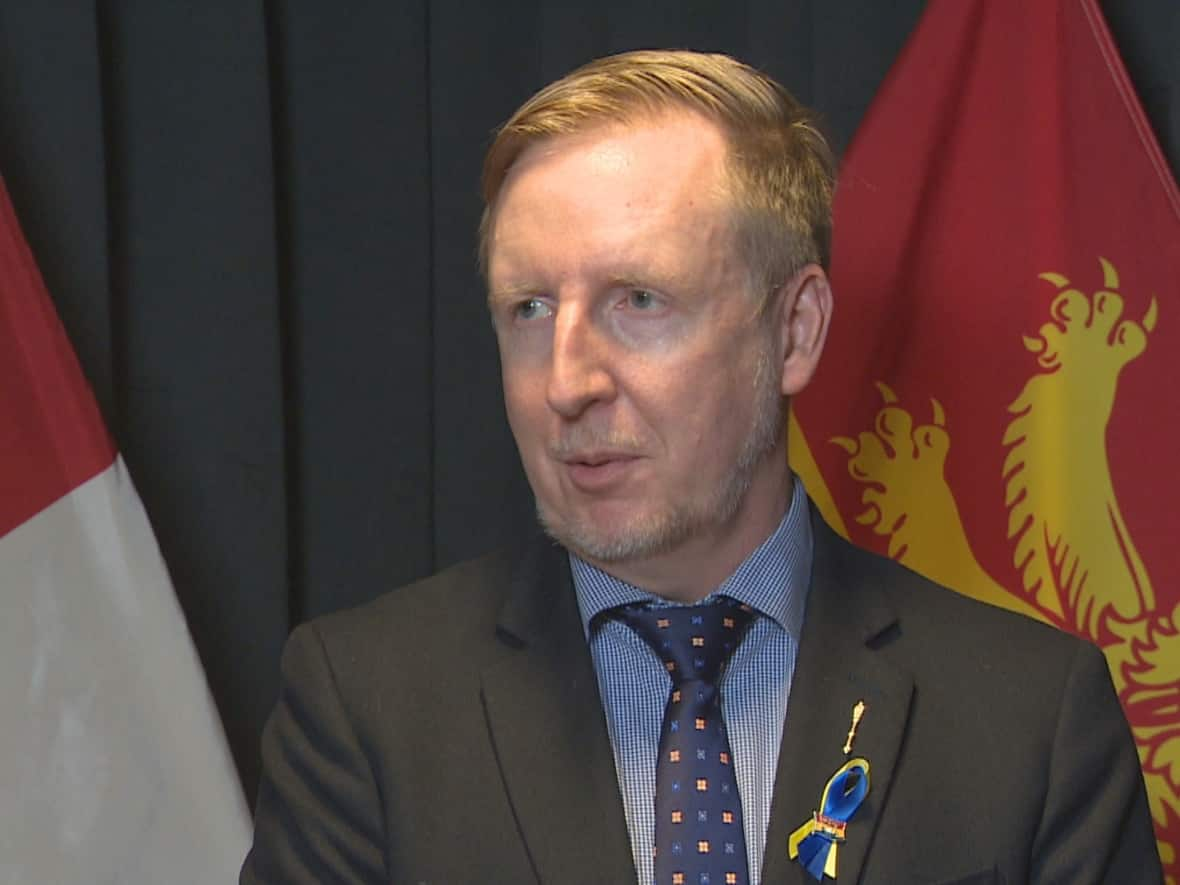Education minister defends plan to get rid of district education councils in N.B.

The New Brunswick minister of education is defending a plan to abandon district education councils when the school system's governance structure is overhauled.
District education councils, or DECs, are the elected bodies that oversee schools in seven districts of the province.
Some DEC councillors have said they're worried the reforms will take power away from parents and school communities.
But Dominic Cardy, speaking to CBC Radio's Shift NB, said his goal is the opposite. He said he wants to reduce the power of the minister's office and increase local democracy and authority.
"My hope is that we can move from structures that may exist, but often don't really influence the way the schools operate, to ones where they can have much greater influence over the way that the school system works, especially in their local communities," Cardy said.
Some district education council chairs were shown a draft of the reforms in March, which said DECs and parent school support committees would be eliminated and replaced by a provincial board and regional councils.
Some DEC members have told CBC News they're concerned this would lead to fewer parents getting involved in the system.
Worries about less parental involvement aren't legitimate, according to Cardy, who said this new structure will work to increase engagement at the local level.
Positions unfilled
District education councils, which were established in 2001, oversee seven school districts in the province. Each has 11 to 13 members, elected for four-year terms.
The councils are responsible for developing policies, supervising trust funds, recommending school closures and determining capital spending priorities. These councils also maintain links with school parent committees, approve and monitor the district education plan and look at the expenditures plan for the district.
However, Cardy believes many people have a lack of understanding about what the councils do, and he said that's one of the reasons why it's sometimes hard to fill vacant DEC seats.
He wants the new governance model to better connect people to where they live. He said he doesn't intend for there to be a separate structure for every single school, but he does want there to be more localized groups, as opposed to just having seven in the whole province.
"I would guess, and I hope we'll see this happen, more people running for elections for those bodies," he said.
Listen to Dominic Cardy's full interview with Shift NB.
Four years have gone into planning these new proposals, Cardy said, which aren't yet set in stone as more consultations will occur before the final draft is released in late spring or early summer.
He said he did a consultation tour in early 2020, right before the pandemic hit, where he said he heard people didn't feel they had a strong level of local representation. Since then, he said, he's done more consultations with experts from around the world and has reviewed literature on governance models.
Cardy said he doesn't want to take away from what any of the district education councils have done over the years.
"I'm hoping that as the conversations continue, that the people who have served on the DECs will first understand why the change needs to happen and also be interested in getting engaged with the new structures as we further refine them and roll them out, because they're going to have a lot to contribute."
After releasing the final draft later this year, Cardy said any resulting legislation would be introduced in the fall session in October or November.


